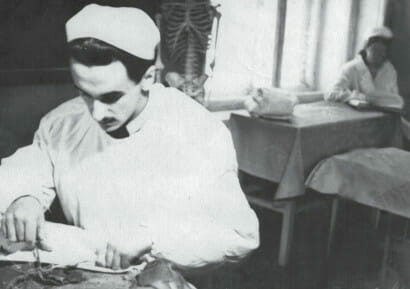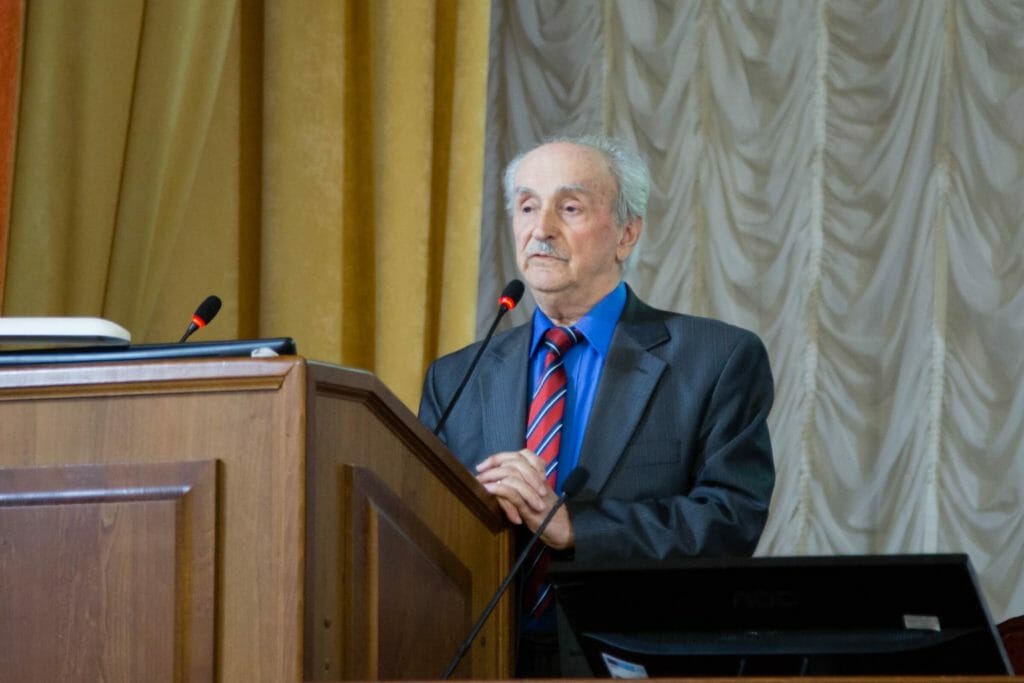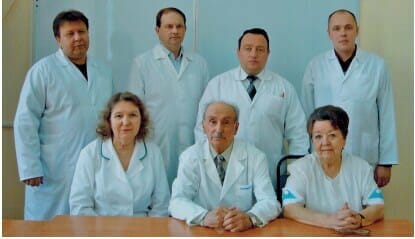One of the Best Books about Nootropics – Read for Free!
September 21, 2023
There are many books about nootropics on Amazon. But very few of them are written by doctors or authors with formal science credentials. CosmicNootropic discovered a book about nootropics and supplements written by Dr Edward Arushanian, a prominent Soviet scientist who is a genuine nootropics expert. “Medical Improvement of the Cognitive Brain Function” is drawn up in Q&A form for those who are hungry to learn how the brain works and what we can do to be smarter.
Following the initiative of translating this book into English we launched the crowd-funding campaign via GoFundMe to make it available to read for all the nootropic enthusiasts like ourselves. Generous donations from nootropic enthusiasts around the globe brought the fundraiser to a successful conclusion. Be the first to delve into the world of nootropics and find answers to most intriguing questions about brain health 👇🏼
About the Author of the books about nootropics

Credentials
Edward Arushanian is the Doctor of Medicine, Professor, and the current Head of the Pharmacology faculty of the Stavropol State Medical University (Russia) and an acting member of the New York Academy of Sciences (since 1995). Dr Arushanian was granted the Honored Scientist of Russia in 1995 as well as a number of other academic awards. His professional interest lies in neuropharmacology and neurophysiology. Dr Arushanian is the author of 855 scientific papers including 27 monographs and about 150 foreign articles, some of them can be found in PubMed. He was also the mentor of 9 doctoral theses.
Early career
Dr Edward Arushanian was born in 1934 in Vladivostok (Russia) and started his scientific path at the age of 19 at the university in Saint-Petersburg. In his younger years, Edward Arushanian worked under the mentorship of Dr Vladimir Zakusov, one of the most prominent medical academicians of the USSR who was the Head of the Zakusov Institute of Pharmacology where Semax, Selank, Noopept, and many other medications were discovered.

After graduating with honors Edward Arushanian started his scientific career in a position of medical assistant at the Chita State Academy of Medicine (Chita, Russia) where he rose to the Head of the faculty of Pharmacology. In 1964 Dr Arushanian organized a micro-neurophysiological laboratory which was the first in Siberia at that time. Over 13 years of work in Chita Dr Arushanian developed a strong scientific and professoriate team, his faculty carried out research devoted to the study of physiological and pharmacological features of the basal ganglia of telencephalon with the assistance of colleagues from cross-disciplinary faculties: psychiatrist, neuropathologist, etc.
Together they developed the concept of antipsychotic effect of neuroleptics and new methods of treating Parkinsonism and epilepsy. The materials were presented in international congresses in San-Francisco (1972), Helsinki (1975), and in Paris (1978) at the IV International Congress of Pharmacologists where Dr Arushanian was the main speaker.

The study of chronopharmacology
In 1983 Dr Arushanian left his high post at Chita university at the summit of his fame and regard and moved to the city of Stavropol to look after his elderly parents. There he was assigned the Head of the Pharmacology faculty of the Stavropol State Medical University.
He had to start over and re-create the faculty: the team, the equipment, the research. Under the leadership of Professor Arushanian, the department launched a set of works to elaborate the unified scientific program Chronopharmacology. The task of the research team was to study the dependence of the pharmacological effect on the state of biological rhythms and the effect of drugs on the oscillatory processes in the body.
For the first time, the hypothesis of the chronopharmacological effect of antidepressants was substantiated in experimental conditions. A new point of view on the origin of the anti-anxiety action of anxiolytic drugs was suggested. Chronobiological characteristics of the action of psychomotor stimulants like caffeine and amphetamines were presented.
A lot of research was devoted to elucidating the contribution of the visual analyzer to the psychostimulant effect and the possibility of a direct pharmacological intervention in the function of the photosensitive apparatus of the retina was postulated. The obtained results were included in a complex of works published after 2000.
Dr Arushanian about science
Dr Arushanian described his relations with science in the following way: “Since my college years, Science has become one of the most exciting pursuits of my life. There is always a place for discovery if you stay away from the tick-box approach. A creative insight may lead to big conclusions that give you joy equal to the joy of creativity in art. This is what prompts me to do Science outside the box.”

What do students say about their professor?
Dr Arushanian has respect for the younger. His willingness to listen and engage goes hand in hand with high standards without any discounts for youth or inexperience. Everyone is given the right to think and work on their own, but everyone shall bear full responsibility for their actions.
K. S. Elbekyan, Doctor of Biology, Head of the Department of General and Biological Chemistry of the Stavropol State Medical University, Professor
When I had to choose my specialization I gave preference to pharmacology without any hesitation, largely thanks to the personality of Dr Arushanian.
K.B. Ovanesov, Doctor of Medical Sciences, Professor of the Department of Pharmacology of the Stavropol State Medical University
I am immensely glad that my dear Teacher to whom I owe everything – my interest in science, my successful professional career, my understanding of life – continues to work, being the country’s leading specialist in the field. It was important for me to feel his support and paternal guidance in my college days. I felt it even when I moved abroad. I carried on and developed his scientific ideas on the other side of the earth.
Orhiy Paul Botvev, Professor at the University of Texas (USA), graduate of the Stavropol State Medical University
Stay healthy!
CosmicNootropic 🚀
Are there plans for a full translation?
Definitely! We are currently working on it. I am afraid I won’t be able to give you an estimate on when it will be released but we will post an update as soon as it is decided.
What is the best nootropics? I have MS and experiencing cognitive decline and in the process of trying nootropics.
Hi Deborah, Cerebrolysin, Cortexin and Piracetam can be used in the treatment of multiple sclerosis. But please note that for most nootropics, the effect can be varied for different people. It strongly depends on personal conditions, so we always recommend consulting a doctor before taking any medication.
Bravo!
Can some1 put it on YouTube. I only listen to books
Hi, thanks for the idea, we will consider this option!
Thank you very much for the book written by Dr Edward Arushanian I am reading the book translated into English. I plan on giving it to my doctor. God bless you!
Thank you for your kind words! :)
Related articles
How Long Does it Take for Noopept to Kick In?
Noopept is a synthetic pharmaceutical, categorized as a nootropic (smart…
Can Noopept Cause Depression?
Noopept is known for its cognitive-enhancing and neuroprotective characteristics. It’s…
Can Noopept Cause Anxiety?
Noopept is one of the most popular nootropics out there…
Can I Take Aniracetam and Noopept Together?
Nootropics, also known as ‘smart drugs,’ are a category of…
Thank you!
You will now receive regular updates from us!
Your coupon